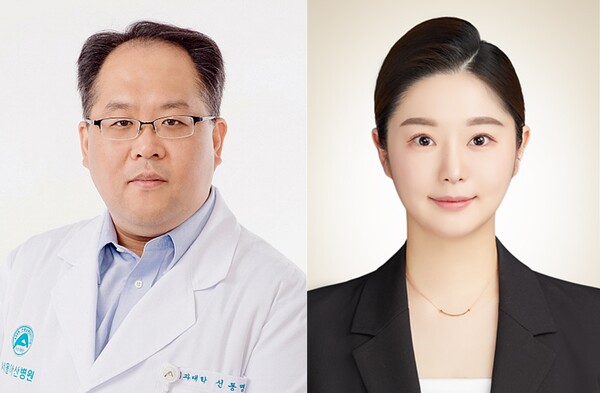Researchers at Asan Medical Center (AMC) researchers have recently demonstrated a key factor that could open up the possibility of developing a treatment for intractable asthma using stem cells.

Asthma is a respiratory disease characterized by recurrent narrowing of the bronchi due to allergic inflammation.
Symptoms include shortness of breath and cough, and the illness can be controlled with bronchodilators and anti-inflammatory medications.
However, as asthma progresses to severe asthma, the structure of the airways can change and fibrosis, a hardening of the lung tissue, can occur.
Most recently, stem cell therapy has been actively researched as a treatment for severe asthma, as it has been difficult to restore damaged lung tissue with existing treatments.
The team, led by Professor Shin Dong-myung and Doctors Ju Hye-in and Ryu Chae-min at the hospital, demonstrated that the Activating transcription factor-2 (ATF2) protein, which regulates gene expression, is a key factor in determining the therapeutic effectiveness of mesenchymal stem cells (MSC) and applying an MSC treatment with increased ATF2 can reduce bronchial inflammation by half in an animal model.
MSCs are the main source of stem cell therapies because they can differentiate into various cells and have anti-inflammatory properties. However, there have been limitations as when culturing MSCs, intracellular free radicals are generated, which reduces their anti-inflammatory function.
To overcome such limitation, the team conducted a previous study in which they treated MSCs with a vitamin C derivative (AA2G) in culture and found that the antioxidant function of MSCs increased.
The team found that AA2G treatment increased the expression and activity of transcriptional activating factor 2 (ATF2), which in turn increased the antioxidant capacity of MSCs.
Also, by genetically manipulating the expression of ATF2 in MSCs, the team found that the self-renewal, migration to damaged tissues, anti-inflammatory, and angiogenic capacities, which are key to the effectiveness of MSC therapy, were also increased.
“This study demonstrates that ATF2 is a key factor in regulating the therapeutic effects of stem cells,” Professor Shin said. “If advanced stem cell therapies can be developed based on the findings, it could open up the possibility of treating intractable asthma.”
Professor Ryu also said, “The significance of this study is that it has provided the basis for advanced regenerative medicine for patients with intractable asthma.”
We will continue to collaborate with various research teams to contribute to the development of next-generation stem cell and regenerative medicine treatment technologies to overcome intractable diseases, Ryu added.

